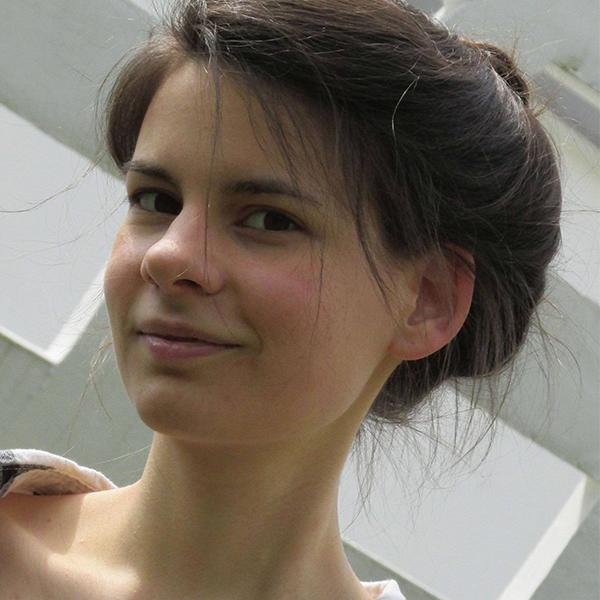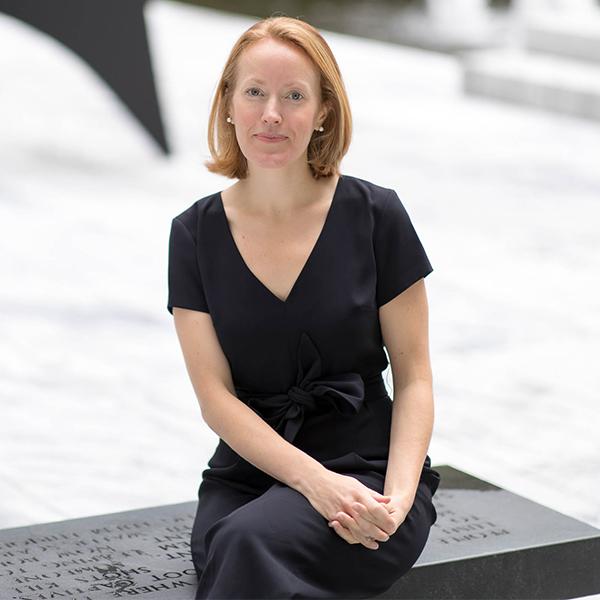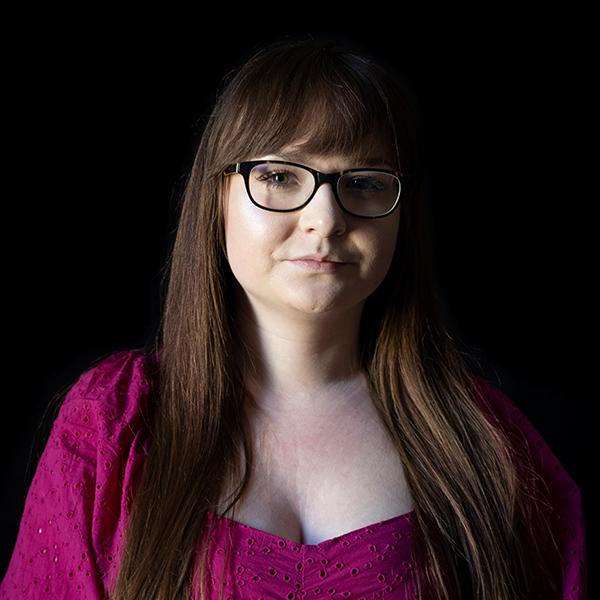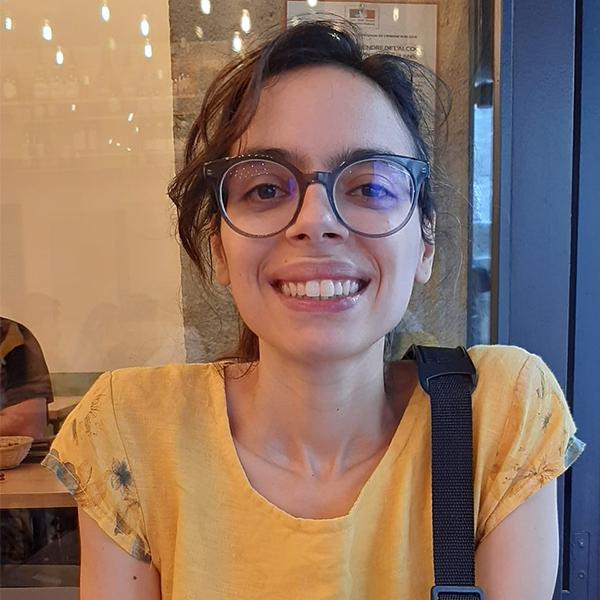Sára Bagdi
Junior research fellow, Petőfi Literary Museum – Kassák Museum, OTKA FK-139325 Research Project and PhD student, Doctoral School of Philosophy, Department of Aesthetic, Eötvös Loránd University, Budapest
Sára Bagdi has been working for the Kassák Museum since 2021 as junior research fellow and co- curated there the exhibition, Wonderful story? An Avant-Garde Artist Couple: Erzsi Újvári and Sándor Barta. She gained an MA from the Department of Art History of ELTE in 2019 and completed her masters studies in Aesthetics in ELTE in 2019. At present, she is a doctoral student in the same institution, partially pursuing her research at the University of Hamburg as a DAAD scholarship holder. Her research areas are culture between the two world wars, primitivism and history of left- wing ideas.
Annemarie Iker
Doctoral candidate in the Department of Art & Archaeology and graduate fellow at the Princeton Institute for International and Regional Studies, Princeton University
A doctoral candidate in the Department of Art & Archaeology at Princeton University and a graduate fellow at the Princeton Institute for International and Regional Studies, Annemarie Iker studies modern European art with a special interest in turn-of-the-century France and Spain. Her dissertation examines the form and function of secrecy in the works of Santiago Rusiñol (1861–1931) and the Catalan modernistes. Annemarie received a B.A., summa cum laude, in European Studies from Amherst College and an M.A. in Art History from Williams College and the Clark Art Institute. She was a 2019-20 Mellon-Marron Research Consortium Fellow in the Department of Drawings & Prints at the Museum of Modern Art, New York, and she has interned at the Clark Art Institute, in Williamstown, and the High Museum of Art, in Atlanta. Her most recent publications are “Scenes of Violence” and “Eye and Brain,” in Cézanne Drawing, ed. Jodi Hauptman and Samantha Friedman (New York: The Museum of Modern Art, 2021).
Kriszta Kiss A.
PhD candidate, University of Szeged
My research is focusing mainly on the autobiographical texts of Jókai Mór, one of the best known authors of 19th century's Hungary. My main question is: how did he shape his narrative identity from year to year, from text to text. I'm studying his autobiographical short stories and novels, looking for his various self narrative methods. In the latest period of my studies I published two articles discussing his pseudonyms and pen-names which he uses in his humor magazines, Nagy Tükör (Big Mirror) and Ütstökös (Comet). I'm focusing on how these pseudonyms slowly became his alter egos, also what is the significance of these periodicals in the history of Hungarian humor magazines and what is the best way to study them.
Jan Lampaert
PhD Candidate, Ghent University
Jan Lampaert is a PhD candidate at the department of Dutch Literature at Ghent University (Belgium) where he is affiliated with the Study Centre for Experimental Literature (SEL). His research project (2021–2025) focuses on Flemish neo-avant-garde periodicals (1949–1975).
Bruna Oliveira Santiago
PhD student in Contemporary History, funded by Foundation for Science and Technology (FCT). Host institution: Institute of Contemporary History (IHC), NOVA School of Social Sciences and Humanities (NOVA FCSH) / IN2PAST – Associate Laboratory for Research and Innovation in Heritage, Arts, Sustainability and Territory
Bruna Oliveira Santiago is a PhD student in Contemporary History, funded by the Foundation for Science and Technology (FCT). She studies at the Institute of Contemporary History (IHC), NOVA School of Social Sciences and Humanities (NOVA FCSH).
Ana Sekso Milković
Lecturer of Hungarian language at the University of Zagreb, Faculty of Humanities and Social Sciences and student at the Postgraduate Doctoral Study in Literature, Theater and Performing Arts, Film, Musicology and Culture at the University of Zagreb
Ana Sekso Milković was born in 1980 in Šibenik, Croatia. She graduated in Art history, Italian language and literature and Hungarian studies at the University of Zagreb, Faculty of Humanities and Social Sciences, where today she works as a lecturer of Hungarian language. Besides Hungarian Language Practice courses, she also gives seminars in Croato-Hungarian Literary Connections at the Department of Hungarian Studies. Since 2018, she has been attending the Postgraduate Doctoral Study in Literature, Theater and Performing Arts, Film, Musicology and Culture at her alma mater. The topic of her scientific research are self-referential works in the literary oeuvre of Lajos Kassák and his contacts with Croatian culture. She wrote a soon to be published study Kassák in Zagreb – Story of an unrealised exhibition in a volume titled Continuity and Discontinuity in Hungarian Culture edited and published by International Association for Hungarian Studies presented at the homonymous conference held in Vienna 2019.





